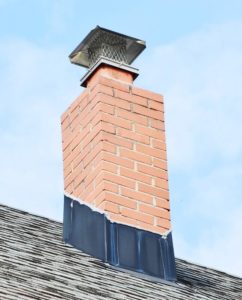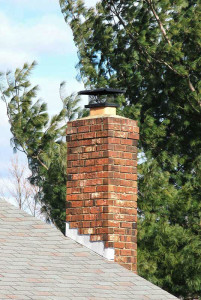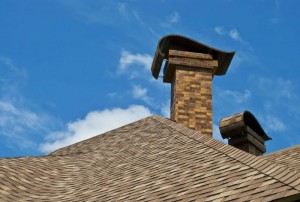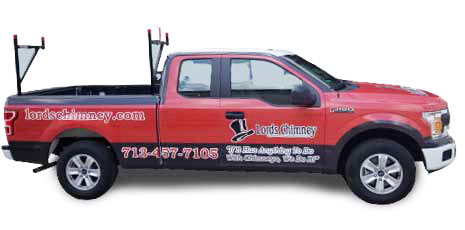The rainy season is upon us here in Houston, and as we move into spring, this rainfall will only continue. Because of this, it is imperative that you ensure your chimney and fireplace are protected! Water leaks are all too common in the world of chimneys. Many homeowners fail to realize that this is actually one problem that is easily avoided if the right measures are taken.
The biggest reason homeowners face problems with leaks and water damage is simply a lack of maintenance. If the chimney cap is missing or the chase cover is cracked or rusted, water will easily work its way in. By then, it is too late.
Get the scoop on chimney caps and chase covers below, then rely on our team to help you out with it all. Owner and CSIA Master Chimney Sweep, Lee Roff, is ready and eager to keep all of Houston and its surrounding areas protected. Lords Chimney is definitely the company you want to trust!
The Importance Of Chimney Caps
How vital is a chimney cap to the overall function of your fireplace? Well, without a protective covering over the top of your chimney, it is left completely open and vulnerable to whatever wants to enter. Whether its rain, animals, or outside debris, it has an easy way to access your home. If water enters your flue, it won’t be long before your metal components start to rust, and your masonry will start to crack and crumble, too.
Water will also break down your liner which leaves you vulnerable to gas leaks and house fires. Using a damaged system is really dangerous, but many fail to realize that they are even experiencing issues. This is why investing in regular inspections are so important!
Chimney caps also work hard to keep out birds and curious woodland critters. One common animal that loves to set up camp in chimneys is the chimney swift. These birds nest on vertical surfaces, and the warmth and protection your chimney offers is ideal. Unfortunately, their numbers are in decline, which is why they are now protected by law. What does that mean for you? Well, it means you’re stuck with them until they leave on their own. In fact, trying to remove them will land you with some hefty fines.
Avoid Chimney Swifts
Like most other birds, these will eventually migrate away from their nest, but don’t think your troubles are over then! They’re known to come back to their same nesting grounds when they return. Fortunately, we have a solution – a chimney cap. With one of these affordable devices in place, you won’t have to worry about any animals entering.
Raccoons, squirrels, and other creatures are also known to work their way into your chimney. In fact, we’ve seen raccoons have babies on the smoke shelf. If your damper gets left open, they could find their way into your home! All in all, getting these animals out and getting your chimney opening sealed up is vital for keeping your chimney, home, and family safer! Now is the time to get your cap installed, so don’t hesitate to reach out to our crew today.
All About Chase Covers
Chase covers, or chase tops, cover the opening of prefabricated units. These models have grown in popularity over the years since they are easier and cheaper to install. They also don’t require the commitment of actually building a permanent fixture in your home. Unfortunately, the flues on the units have been proven to attract even more birds than those of masonry chimneys.
Because of this, they need a protective covering, and that’s where your chase cover comes in. Nesting materials can clog things up in a hurry, causing draft and airflow issues. As nests are made of flammable materials, this also creates a fire hazard for your home. The smartest, safest, and most cost-effective route to take is to have a chase cover installed before any of these issues start to occur.
Unfortunately, a lot of these prefabricated models come with a chase cover that is made of weaker materials, which means it will rust and corrode before you know it. An ideal cover will be designed with a slight slope, ensuring water does not pool on top, and they should be made from strong products, such as galvanized metal, so you won’t need to worry about it breaking down any time soon. Ready for us to helpt? Reach out now – we’re more than happy to help.
We Are Dedicated To Our Customers
We go above and beyond to ensure our customer base is satisfied, and we are certain there is no better team than ours to trust throughout the Houston area. Our award-winning sweeps are certified with the CSIA and the NFI, and we’re members of the NSCG, too. We always use the high-quality tools and products we know you deserve, and you can trust that we never cut corners or take shortcuts.
The protection you’re looking for is a phone call away. Get in touch with us now!
Animals love chimneys; whether it is raccoons or squirrels, roof rats or birds, many different types of animals view chimneys as a safe, protected space to nest, have their young, or hide from predators. Unfortunately, animal entry can cause serious damage to your chimney, as well as put you and your family at risk.
When an animal gets into your chimney, it can be harmful to them and damaging to your chimney. However, it is possible to avoid animal entry with regular chimney maintenance and a good chimney cap.
 How animals get in
How animals get in
The most common cause of animal entry into chimneys is a missing or damaged chimney cap. The chimney cap sits at the top of the flue, covering and protecting the flue from animals and the elements. While the solid metal top of the chimney cap prevents water from getting in, the mesh or wire sides serve two purposes: letting smoke out and preventing animals from getting in.
If they chimney cap is damaged in any way, it may be easier for animals to get in. Small holes, dents, damaged mesh, or missing screws might seem too minor, but even these small issues can leave spaces for animal entry. Birds and small mammals often only need a few inches of space to wiggle through, while raccoons have been known to claw or bite weak areas of chimney caps to create larger holes.
How animals damage your chimney
Even a tiny animal can create a big problem in your chimney. Below are some of the ways that animals can damage your chimney.
- Chimney cap: Animals can create or worsen damage to the chimney cap. This can leave your chimney susceptible to water and debris getting in – as well as more animals in the future.
- Flue liner: Sharp claws and talons can scratch and chip the delicate flue liner. Areas of damage in the liner can expose the surrounding building materials to heat or gasses from the chimney and may require your chimney to be relined.
- Debris: Animals rarely come into your chimney empty handed. Dry nesting materials in the chimney can ignite if the fireplace is used, putting you at greater risk for chimney fire. Likewise, many wild animals also carry bacteria, bugs, and other diseases.
Keeping animals out
The best way to keep animals out of your chimney is by having a quality, well-fitted and correctly installed chimney cap. A quality chimney cap protects the area of your chimney that is most susceptible to animal entry, as well as keeps water and debris from entering your chimney. Regular chimney inspections can also be used to spot damage to the chimney cap or other areas of the chimney before animals can get in.
At Lords Chimney, we are the animal removal experts; not only can we safely get the animals out, but we can also prevent them from coming back with a quality chimney cap. Contact us today to learn more about how the chimney cap protects your fireplace system from animal entry.
Your chimney and venting system consists of several different components to make it function safely and correctly. One of the most important parts of your chimney system, a chimney cap is needed to protect your chimney from water penetration, animal intrusion, and other things. While chimney caps are not required, we at Lords Chimney strongly recommend your chimney be capped for several essential reasons. As the cost and installation of a chimney cap is relatively inexpensive and can protect you against more expensive repair work, there is no excuse not to have a chimney cap on top of your chimney. We would like to tell you why a chimney cap is such a vitally important part of your chimney system.

A chimney cap protects the interior of your chimney from the elements.
According to EBSCO Research, a chimney cap keeps rain and melted snow from entering your chimney. If you receive a two-inch downpour of rain and have no chimney cap, you can get those two inches of rain water into your chimney. A chimney cap also protects you from wind issues. Persistent drafts can cause frustration and loss of money on heating bills. While a basic chimney cap will protect you from rain and melted snow, you can find special wind-resistant caps if you have problems with downdrafts in your chimney.
A chimney cap keeps animals from entering your chimney.
Even if you live in a climate with no snow and little rain, you still need a chimney cap to keep birds, squirrels, and raccoons out of your chimney. Many of these animals mistake chimneys for hollow trees and choose a chimney as a safe place to nest. Both the animals and their nesting can be fire hazards. The nests can cause chimney blockages and prevent toxic gases like carbon monoxide from exiting out through the chimney. This causes a risk of carbon monoxide poisoning since the gas is forced back into your home. Additionally, animals can become trapped and possibly die within your chimney, which causes a horrific odor and a possible bug infestation. To prevent these problems that come along with animal invasions. Contact Lords Chimney to install a chimney cap with metal screening on the sides to keep the animals out.
A chimney cap prevents sparks from jumping out of the chimney and igniting a fire.
We have talked about how a chimney cap is needed to keep things out of your chimney, but a cap is also important to keep hot sparks and embers inside your chimney. Occasionally, sparks and embers can fly out of your chimney and land on your roof or your neighbor’s roof, which can possibly cause a house fire. These sparks and embers may also land in your yard on a pile of leaves or a bush and cause a brush fire, which can quickly and easily become out of control. To prevent this, have a chimney cap with spark arrestors, or wire meshing, to keep the hot sparks and embers safely within your chimney.
Have more questions about chimney caps? Contact Lords Chimney to talk to our expert staff about custom installing a chimney cap on top of your chimney.



 How animals get in
How animals get in